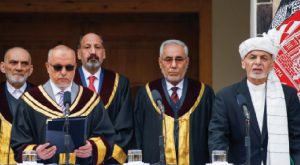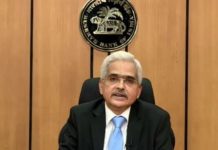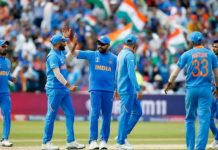 Amidst the two swearing in for the office of the president in Afghanistan, the main rivals Ashraf Ghani and Abdullah Abdullah have claimed their respective victory. It has happened in spite of the US efforts that too when the aggressive Sunni Muslim terrorists renewed their attack on an ethnic minority, Hazara, followers of Shite Islam. The violence killing more than 30 people on the spot and another 42 wounded, including 20 in critical condition took place within a week of the much trumpeted USA-Taliban Accord of February 29 at Doha. The political situation is worsening in the war-torn country.
Amidst the two swearing in for the office of the president in Afghanistan, the main rivals Ashraf Ghani and Abdullah Abdullah have claimed their respective victory. It has happened in spite of the US efforts that too when the aggressive Sunni Muslim terrorists renewed their attack on an ethnic minority, Hazara, followers of Shite Islam. The violence killing more than 30 people on the spot and another 42 wounded, including 20 in critical condition took place within a week of the much trumpeted USA-Taliban Accord of February 29 at Doha. The political situation is worsening in the war-torn country.
The attackers now identified as, Islamic State in Iraq and Levant (ISIL) or Islamic State of Syria and Iraq (ISIS). It is known fact that Taliban, Al Qaeda and Pakistan’s intelligence service, ISI, work together. In this context, India’s worries have increased manifold. The sharp division within the Afghanistan government, the president Ghani and the Chief Executive, Abdullah may delay the implementation of the Accord.
The Kabul blast of March 6 just reminds the brutality when Niazi did not allow anyone to bury the corpses for the first six days. The bodies were rotted in the summer heat and were eaten by dogs. The perpetrators of the crime systematically went door to door of Hazara households searching for young men shooting them and slitting their throats right in front of their families.
It is interestingly to note that both Ashraf Ghani and Abdullah belong to Pashtun tribe. Since Abdullah’s mother was Tajik, which makes him much more acceptable among the minorities. He was present on March six, at a Kabul function held to commemorate the assassination of the Hazara leader, Abdul Ali Mazari, when the powerful bomb explosion hit the crowd He fortunately escaped unhurt. If the two leaders do not reconcile, the civil war within Afghanistan may further aggravate. Of the total population of the country, Pashtuns are almost 40 per cent, Tajiks are 36, Hazaras and Uzbeks are 10 and eight per cent respectively.
The standoff between the two leaders is not only ill-timed, but it may again cause anarchy in the country. It reminds of the Communist rebels successfully overthrowing President Sardar Mohammed Daoud in 1978. Following the death of Daoud, Nur Mohammed Taraki, head of the Afghan Communist Party, took over the presidency. In September 1979, Taraki was himself overthrown and murdered the orders of his deputy, Hafizullah Amin.
Three months later, Soviet troops crossed into Afghanistan and installed a government acceptable to them. It led to the killing of Amin and the installation of the pro-USSR Barbrak Kamal. Nine years later, USSR leader Mikhail Gorbachev withdrew the Soviet forces in 1988.
letters@tehelka.com













